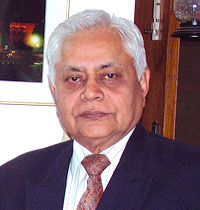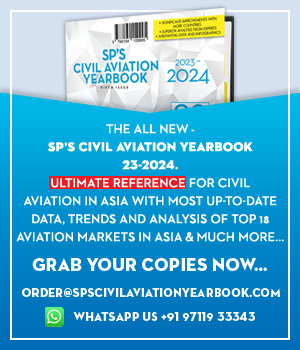Editor’s Note
The global civil aviation industry is embarked on innovation and technological advancements to radically transform the norms of air travel in 2021

The COVID-19 Pandemic that had a deleterious impact on the global civil aviation industry, took its toll on the Indian airline industry as well. Fortunately for India, the intensity of the Pandemic has now subsided to a notable extent allowing the Indian airline industry to resume domestic operations to a great extent. This has brought the much needed relief not only to the Indian airline industry; but to the general public as well as the facility of air travel is now readily available albeit with some restrictions. The fact that the Ministry of Defence has decided to hold the biennial Aero India Air Show at Bengaluru in the first week of February this year, is a clear indication that the battle against the COVID-19 Pandemic has been won!
The global civil aviation industry is embarked on innovation and technological advancements to radically transform the norms of air travel in 2021. In this issue of SP’s Airbuz, there is a detailed analysis by Ayushee Chaudhary of SP Guide Publications, of how the global civil aviation industry proposes to redefine air travel in the future. The author also analyses how the Tata Group is consolidating its position in the Indian airline industry by increasing its stake in AirAsia India and is in the race to take over the national carrier Air India that it sold to the government six decades ago. If the Tata Group does eventually manage to take over Air India, it will be a home-coming for the national carrier. The Tata Group is certainly moving forward to emerge as a major player in the Indian airline industry.
Fuel efficiency of engines powering airliners, has a direct impact on the total fuel consumption which in turn has implications for the operating cost of airlines. This issue of the magazine carries a detailed analysis by Anil Chopra, of this vital aspect that affects the economics of airline operations and reviews the measures adopted by the leading engines manufacturers in the world to address the problem of fuel efficiency of aero engines and economy of operations.
While foray into the supersonic regime for air travel was initially seen as a significant step forward for the industry, unfortunately, this major technological breakthrough did not prove to be a successful venture for a variety of reasons. However, efforts are on in the global civil aviation industry to once again break into the supersonic regime with airliners of new design that would meet with both technological and regulatory parameters. This issue of SP’s Airbuz carries a comprehensive article on the subject by Joseph Noronha.
All this and more in this issue of SP’s Airbuz. Welcome aboard and we wish you many happy landings! Do visit us at Hall-E, Stall: E4.6 at the Aero India Air Show.
Jai Hind!





